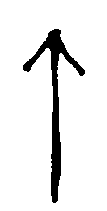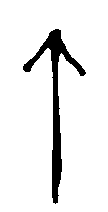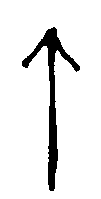The Psychology Book (19 page)
Read The Psychology Book Online
Authors: Unknown


58 INTRODUCTION
Charles Darwin
John B. Watson
publishes
The Expression
publishes
Psychology As
Zing-Yang Kuo’s
of the Emotions in Men
The Behaviorist Views It
,
Ivan Pavlov
experiments with cats
and Animals
arguing
which becomes the
demonstrates
classical
and rats attempt to show
that behaviors are
unofficial
behaviorist
conditioning
in his
that
there is no such
evolutionary adaptations.
manifesto
.
experiments on dogs.
thing as instinct
.
1872
1913
1927
1930
1898
1920
1929
1930
Edward Thorndike’s
John B. Watson
Karl Lashley’s
B.F. Skinner
Law of Effect
states
experiments on “Little
experiments in brain
demonstrates the
that responses which
Albert,” teaching the
dissection show that
the
effects of
“operant
produce satisfying
baby a
conditioned
whole brain is involved
conditioning”
in
effects are more likely
emotional response
.
in learning
.
experiments on rats.
to be repeated.
B
y the 1890s, psychology the mind—behavior—under strictly physical processes, and it was a was accepted as a scientific
controlled laboratory conditions.
Russian physiologist, Ivan Pavlov,
subject separate from its
As John B. Watson put it,
who unwittingly provided a basis
philosophical origins. Laboratories
psychology is “that division of
for the emergent behaviorist
and university departments had
Natural Science which takes
psychology. In his now famous
been established in Europe and
human behavior—the doings
study of salivation in dogs, Pavlov
the US, and a second generation of
and sayings, both learned and
described how an animal responds
psychologists was emerging.
unlearned—as its subject matter.”
to a stimulus in the process of
In the US, psychologists anxious
Early “behaviorists,” including
conditioning, and gave psychologists
to put the new discipline on an
Edward Thorndike, Edward
the foundation on which to build
objective, scientific footing reacted
Tolman, and Edwin Guthrie,
the central idea of behaviorism. The
against the introspective,
designed experiments to observe
notion of conditioning, often
philosophical approach taken
the behavior of animals in carefully
referred to as “stimulus–response”
by William James and others.
devised situations, and from these
(S–R) psychology, shaped the form
Introspection, they felt, was by
tests inferred theories about how
behaviorism was to take.
definition subjective, and theories
humans interact with their
The behaviorist approach
based on it could be neither proved
environment, as well as about
concentrated on observing
nor disproved; if psychology was
learning, memory, and conditioning.
responses to external stimuli,
to be treated as a science, it would
ignoring inner mental states and
have to be based on observable
Conditioning responses
processes, which were thought
and measurable phenomena.
Behaviorist experiments were
to be impossible to examine
Their solution was to study the
influenced by similar experiments
scientifically and therefore could
manifestation of the workings of
devised by physiologists studying
not be included in any analysis of









BEHAVIORISM 59
Karl Lorenz discovers